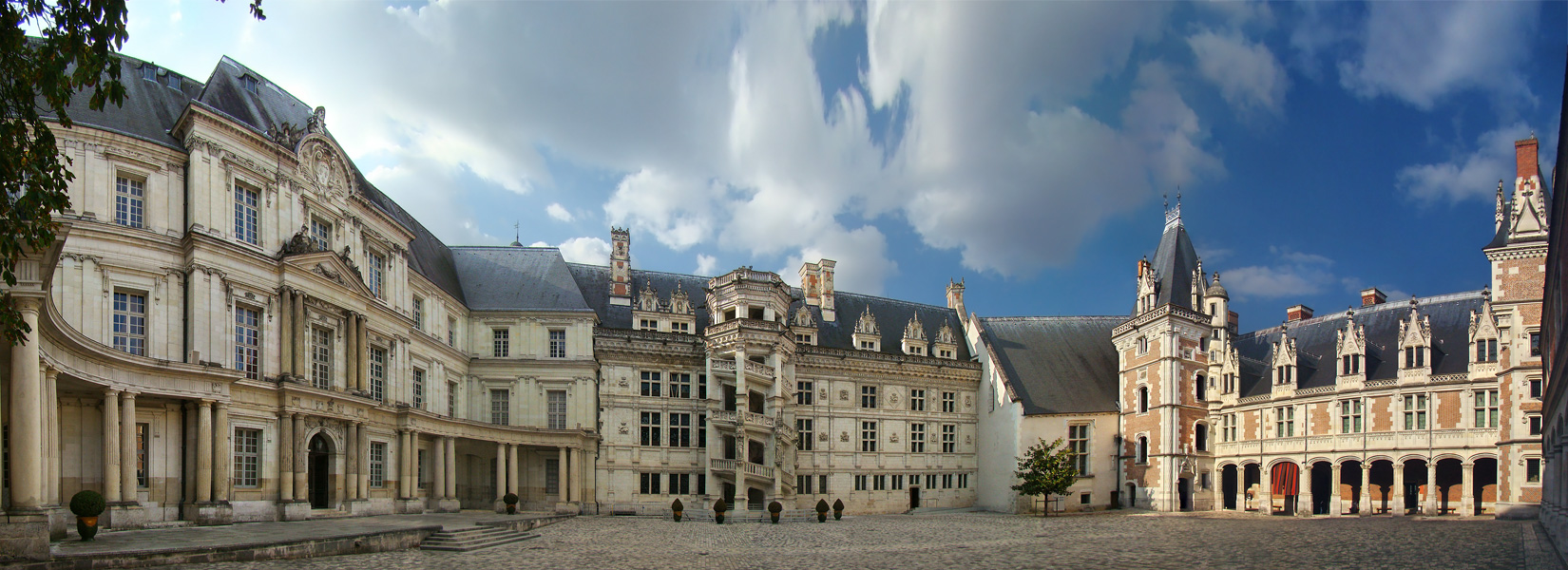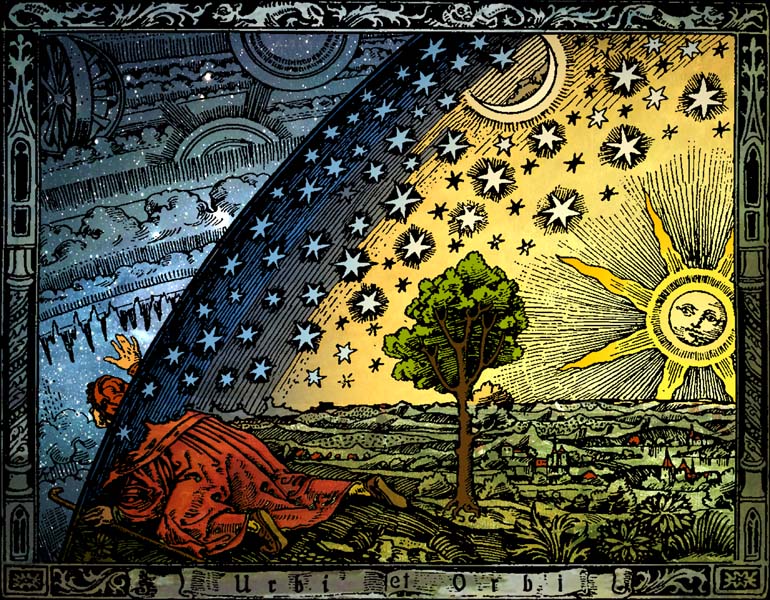|
René Guénon
René Jean-Marie-Joseph Guénon (15 November 1886 – 7 January 1951), also known as ''Abdalwâhid Yahiâ'' (; ''ʿAbd al-Wāḥid Yaḥiā'') was a French intellectual who remains an influential figure in the domain of metaphysics, having written on topics ranging from esotericism, "sacred science" and "traditional studies" to symbolism and initiation. In his writings, he proposes "to expound directly some aspects of Eastern metaphysical doctrines" of "universal character", or "to adapt these same doctrines for Western readers while keeping strictly faithful to their spirit", following the Hindu pedagogy of "handing down" the doctrines while reiterating their "non-human character". Initiated into Islamic esotericism from as early as 1910 when he was 24, he mainly wrote and published in French, and his works have been translated into more than twenty languages; he also wrote in Arabic an article for the journal ''Al Marifah''. Biography René Guénon was born in 1886 in ... [...More Info...] [...Related Items...] OR: [Wikipedia] [Google] [Baidu] |
Blois
Blois ( ; ) is a commune and the capital city of Loir-et-Cher department, in Centre-Val de Loire, France, on the banks of the lower Loire river between Orléans and Tours. With 45,898 inhabitants by 2019, Blois is the most populated city of the department, and the 4th of the region. Historically, the city was the capital of the county of Blois, created on 832 until its integration into the Royal domain in 1498, when Count Louis II of Orléans became King Louis XII of France. During the Renaissance, Blois was the official residence of the King of France. History Pre-history Since 2013, excavations have been conducted by French National Institute of Preventive Archaeological Research (''INRAP'' in French) in Vienne where they found evidence of "one or several camps of late Prehistory hunter-gatherers, who were also fishermen since fishing traps were found there.. ..They were ancestors of the famous Neolithic farmer-herders, who were present in current France around 6,000 ... [...More Info...] [...Related Items...] OR: [Wikipedia] [Google] [Baidu] |
Esoterism
Western esotericism, also known as esotericism, esoterism, and sometimes the Western mystery tradition, is a term scholars use to categorise a wide range of loosely related ideas and movements that developed within Western society. These ideas and currents are united since they are largely distinct both from orthodox Judeo-Christian religion and Enlightenment rationalism. Esotericism has pervaded various forms of Western philosophy, religion, pseudoscience, art, literature, and music—and continues to influence intellectual ideas and popular culture. The idea of grouping a wide range of Western traditions and philosophies together under the term ''esotericism'' developed in Europe during the late seventeenth century. Various academics have debated various definitions of Western esotericism. One view adopts a definition from certain esotericist schools of thought themselves, treating "esotericism" as a perennial hidden inner tradition. A second perspective sees esotericism as ... [...More Info...] [...Related Items...] OR: [Wikipedia] [Google] [Baidu] |
Laozi
Laozi (), also known by numerous other names, was a semilegendary ancient Chinese Taoist philosopher. Laozi ( zh, ) is a Chinese honorific, generally translated as "the Old Master". Traditional accounts say he was born as in the state of Chu in the 6th centuryBC during China's Spring and Autumn Period, served as the royal archivist for the Zhou court at Wangcheng (modern Luoyang), met and impressed Confucius on one occasion, and composed the ''Tao Te Ching'' before retiring into the western wilderness. Chinese folk religion considers he then became an immortal hermit or a god of the celestial bureaucracy under the name Laojun, one of the Three Pure Ones. A central figure in Chinese culture, Laozi is generally considered the founder of philosophical and religious Taoism. He was claimed and revered as the ancestor of the 7th10th century Tang dynasty and similarly honored by modern Chinese with the surname Li. His work had a profound influence on subsequent Chinese re ... [...More Info...] [...Related Items...] OR: [Wikipedia] [Google] [Baidu] |
Plotinus
Plotinus (; grc-gre, Πλωτῖνος, ''Plōtînos''; – 270 CE) was a philosopher in the Hellenistic philosophy, Hellenistic tradition, born and raised in Roman Egypt. Plotinus is regarded by modern scholarship as the founder of Neoplatonism. His teacher was the self-taught philosopher Ammonius Saccas, who belonged to the Platonism, Platonic tradition. Historians of the 19th century invented the term "neoplatonism" and applied it to refer to Plotinus and his philosophy, which was vastly influential during Late Antiquity, the Middle Ages, and the Renaissance. Much of the biographical information about Plotinus comes from Porphyry (philosopher), Porphyry's preface to his edition of Plotinus' most notable literary work, ''The Enneads''. In his Metaphysics, metaphysical writings, Plotinus described three fundamental principles: Henology, the One, Nous, the Intellect, and the wikt:psyche#English, Soul. His works have inspired centuries of Paganism, Pagan, Jewish philosophy, ... [...More Info...] [...Related Items...] OR: [Wikipedia] [Google] [Baidu] |
Aristotle
Aristotle (; grc-gre, Ἀριστοτέλης ''Aristotélēs'', ; 384–322 BC) was a Greek philosopher and polymath during the Classical Greece, Classical period in Ancient Greece. Taught by Plato, he was the founder of the Peripatetic school of philosophy within the Lyceum (classical), Lyceum and the wider Aristotelianism, Aristotelian tradition. His writings cover many subjects including Physics (Aristotle), physics, biology, zoology, metaphysics, logic, ethics, aesthetics, Poetics (Aristotle), poetry, theatre, music, rhetoric, psychology, linguistics, economics, politics, meteorology, History of geology, geology, and government. Aristotle provided a complex synthesis of the various philosophies existing prior to him. It was above all from his teachings that Western culture, the West inherited its intellectual lexicon, as well as problems and methods of inquiry. As a result, his philosophy has exerted a unique influence on almost every form of knowledge in the West a ... [...More Info...] [...Related Items...] OR: [Wikipedia] [Google] [Baidu] |
Plato
Plato ( ; grc-gre, Πλάτων ; 428/427 or 424/423 – 348/347 BC) was a Greek philosopher born in Athens during the Classical period in Ancient Greece. He founded the Platonist school of thought and the Academy, the first institution of higher learning on the European continent. Along with his teacher, Socrates, and his student, Aristotle, Plato is a central figure in the history of Ancient Greek philosophy and the Western and Middle Eastern philosophies descended from it. He has also shaped religion and spirituality. The so-called neoplatonism of his interpreter Plotinus greatly influenced both Christianity (through Church Fathers such as Augustine) and Islamic philosophy (through e.g. Al-Farabi). In modern times, Friedrich Nietzsche diagnosed Western culture as growing in the shadow of Plato (famously calling Christianity "Platonism for the masses"), while Alfred North Whitehead famously said: "the safest general characterization of the European philosophica ... [...More Info...] [...Related Items...] OR: [Wikipedia] [Google] [Baidu] |
Eastern Philosophy
Eastern philosophy or Asian philosophy includes the various philosophies that originated in East and South Asia, including Chinese philosophy, Japanese philosophy, Korean philosophy, and Vietnamese philosophy; which are dominant in East Asia, and Indian philosophy (including Hindu philosophy, Jain philosophy, Buddhist philosophy), which are dominant in South Asia, Southeast Asia, Tibet, and Mongolia. Indian philosophy Indian philosophy refers to ancient philosophical traditions ( sa, ; 'world views', 'teachings') of the Indian subcontinent. Jainism may have roots dating back to the times of the Indus Valley civilization. The major orthodox schools arose sometime between the start of the Common Era and the Gupta Empire. These Hindu schools developed what has been called the "Hindu synthesis" merging orthodox Brahmanical and unorthodox elements from Buddhism and Jainism. Hindu thought also spread east to the Indonesian Srivijaya empire and the Cambodian Khme ... [...More Info...] [...Related Items...] OR: [Wikipedia] [Google] [Baidu] |
Western Esotericism
Western esotericism, also known as esotericism, esoterism, and sometimes the Western mystery tradition, is a term scholars use to categorise a wide range of loosely related ideas and movements that developed within Western society. These ideas and currents are united since they are largely distinct both from orthodox Judeo-Christian religion and Enlightenment rationalism. Esotericism has pervaded various forms of Western philosophy, religion, pseudoscience, art, literature, and music—and continues to influence intellectual ideas and popular culture. The idea of grouping a wide range of Western traditions and philosophies together under the term ''esotericism'' developed in Europe during the late seventeenth century. Various academics have debated various definitions of Western esotericism. One view adopts a definition from certain esotericist schools of thought themselves, treating "esotericism" as a perennial hidden inner tradition. A second perspective sees esotericism ... [...More Info...] [...Related Items...] OR: [Wikipedia] [Google] [Baidu] |
Wisdom Tradition
Wisdom Tradition is a synonym for Perennialism, the idea that there is a perennial or mystic inner core to all religious or spiritual traditions, without the trappings, doctrinal literalism, sectarianism, and power structures that are associated with institutionalized religion. The Wisdom Tradition provides a conceptual framework for the development of the inner self, living a spiritual life, and the realization of enlightenment or of union with God. Ken Wilber frequently uses the term in the plural in his own books, shadowing the theologian Huston Smith who popularized the usage. In this context it can be considered synonymous with esotericism, but does not have the faintly Western/Middle Eastern/theosophical nuances that are sometimes associated with the latter term. In Christianity and in the Old Testament, the term is used to describe female images of the divine in the Book of Wisdom. It is one of the seven Sapiential or wisdom books of the Septuagint Old Testament, w ... [...More Info...] [...Related Items...] OR: [Wikipedia] [Google] [Baidu] |
Social Criticism
Social criticism is a form of academic or journalistic criticism focusing on social issues in contemporary society, in particular with respect to perceived injustices and power relations in general. Social criticism of the Enlightenment The origins of modern social criticism go back at least to the Age of Enlightenment. According to the historian Jonathan Israel the roots of the radical enlightenment can be found in Spinoza and his circle. Radical enlighteners like Jean Meslier were not satisfied with the social criticism of the time, which was essentially a criticism of religion. The focus of his criticism was the suffering of the peasants. In addition, there was also a criticism of civilization for religious reasons, such as that which emanated from the Quakers in England. Jean-Jacques Rousseau developed a social criticism in his political philosophy which influenced the French Revolution and in his pedagogy. Academic forms The positivism dispute between critical ration ... [...More Info...] [...Related Items...] OR: [Wikipedia] [Google] [Baidu] |
Mathematics
Mathematics is an area of knowledge that includes the topics of numbers, formulas and related structures, shapes and the spaces in which they are contained, and quantities and their changes. These topics are represented in modern mathematics with the major subdisciplines of number theory, algebra, geometry, and analysis, respectively. There is no general consensus among mathematicians about a common definition for their academic discipline. Most mathematical activity involves the discovery of properties of abstract objects and the use of pure reason to prove them. These objects consist of either abstractions from nature orin modern mathematicsentities that are stipulated to have certain properties, called axioms. A ''proof'' consists of a succession of applications of deductive rules to already established results. These results include previously proved theorems, axioms, andin case of abstraction from naturesome basic properties that are considered true starting poin ... [...More Info...] [...Related Items...] OR: [Wikipedia] [Google] [Baidu] |



.jpg)




